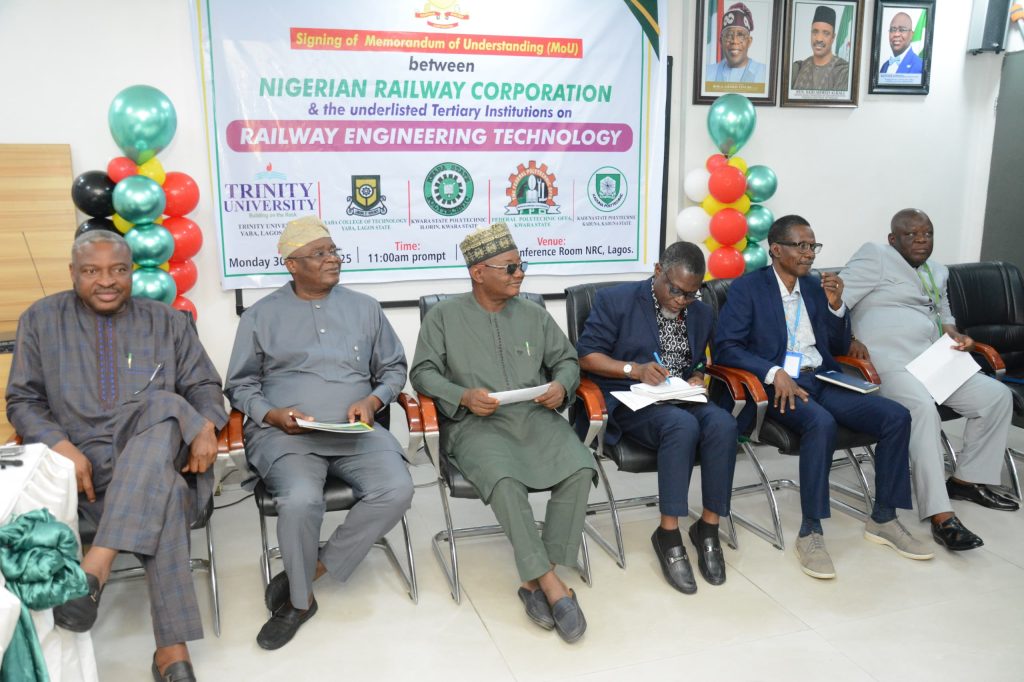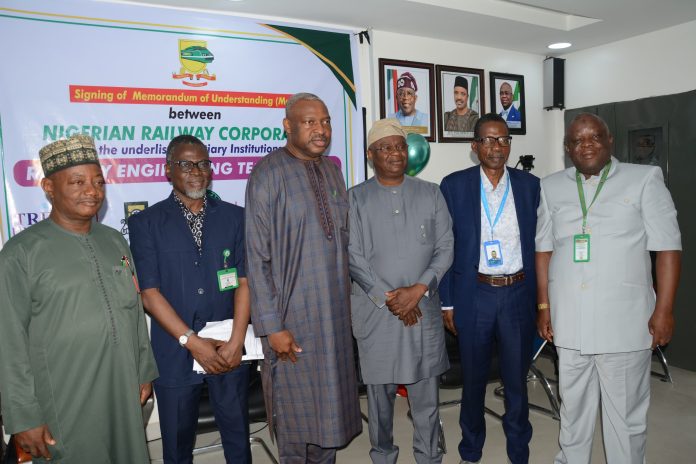Abiodun JIMOH
In a strategic move to deepen Nigeria’s railway technology capacity and reduce reliance on costly foreign training, the Nigerian Railway Corporation (NRC) on Monday signed a Memorandum of Understanding (MoU) with five tertiary institutions across the country.
The historic MoU was signed with Yaba College of Technology (Lagos), Kwara State Polytechnic (Ilorin), Federal Polytechnic (Offa), Kaduna Polytechnic (Kaduna), and Trinity University (Lagos). The agreement will foster collaborative research, skill acquisition, technology transfer, and joint training programmes between the NRC and the participating schools.

Managing Director of NRC, Dr. Kayode Opeifa, described the MoU as a “win-win situation for the nation,” noting it would empower both NRC staff and students of the institutions through practical training in railway technology, logistics engineering, digital systems, and locomotive maintenance.
“This is not just about skill acquisition. It is about staff development, breaking the ceiling of promotion stagnation, and expanding opportunities for formal education in railway-related fields,” Opeifa said.
According to him, the collaboration will also make the corporation’s advanced equipment and facilities accessible to students and researchers, while allowing retiring NRC staff to offer their experience through academic engagement as guest lecturers.
While foreign training will still be pursued where necessary, the NRC boss stressed that the local initiative will significantly cut training costs and improve local capacity. “If we can offer that knowledge here, there will be no need to travel abroad. That’s huge savings for the country,” he added.
The Rector of Federal Polytechnic, Offa, Dr. Kadir Oluwatoyin, lauded the move, describing it as aligned with President Bola Tinubu’s Renewed Hope Agenda. “This will provide hands-on exposure to our students, internship opportunities, and sabbatical options for staff. It is a bold and commendable move,” he said.
His counterpart at Kwara State Polytechnic, Dr. Abdul Mohammed, noted that the partnership would reduce dependence on expatriates and promote job creation in the long term. “Once the programme is fully developed, we will have a pool of local talents capable of sustaining the rail industry—home and abroad,” he said.














